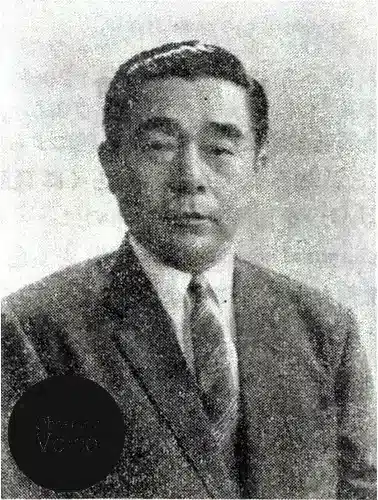Kenichi Fukui: Unraveling the Mysteries of Chemical Reactions

Kenichi Fukui (4 October 1918 – 9 January 1998) was a Japanese chemist. He was the first Asian to be awarded the 1981 Nobel Prize in Chemistry.
Life and Career
Kenichi Fukui was born on 4 October 1918 in Nara, Japan. He wasn’t very interested in Chemistry when he was a kid. However, he enrolled in the Department of Industrial Chemistry at Kyoto Imperial University on the advice of Professor Gen-itsu Kita. He graduated in 1941.
Following graduation, he worked at the Army Fuel Laboratory in Japan during World War II. He studied synthetic fuel chemistry. In 1943, he became a lecturer at Kyoto Imperial University’s fuel chemistry department. Later, he became an Assistant Professor in 1945 and a professor in 1951. He stayed on as a professor until 1982.
His early work focused on quantum chemistry, physical chemistry, and chemical reaction theory. In the 1950s, he started developing theories about the role of electron orbitals in molecular reactions. In 1952, he proposed a molecular orbital theory that suggested molecules that occupy frontier orbitals share electrons that are loosely bound during chemical reactions. A bond is formed when two orbitals of two molecules overlap each other.
Kenichi Fukui came up with the term ‘frontier orbitals’ to describe the highest occupied molecule orbital (HOMO) and the lowest unoccupied molecule orbital (LUMO). This theory was published in the Journal of Chemical Physics titled ‘A molecular theory of reactivity in aromatic hydrocarbons’. Although his theory was initially criticized due to its vague foundation, in later years it gained a great deal of attention on an international scale. Understanding the theory led to a change in perception of the mechanisms involved in the chemical reactions that produce organic compounds.
He worked on theoretical chemistry throughout the 1960s. Because he used advanced mathematics, his theories were considered too complex. Also, he came up with a statistical theory of gelation, polymerization kinetics, and organic synthesis by inorganic salts. In 1982, he became president of the Kyoto Institute of Technology, a position he held until 1988. From 1988 until his death, he was director of the Institute for Fundamental Chemistry.
During his career, he authored more than 130 papers on experimental organic chemistry, catalytic engineering, and reaction engineering. The works were mostly published in Japanese papers and journals. Then he wrote more than 250 English papers about chemical relations, organic synthesis by inorganic salts, catalysts, polymerization kinetics, and gelation statistical theory. He died on 9 January 1998, in Kyoto, Japan.
Award and Achievements
In 1981, In 1981 he jointly received the Nobel Prize in Chemistry with Roald Hoffman. The Japanese government awarded him a Grand Cordon of the Order of the Rising Sun in 1988. He served as President of the Chemical Society of Japan between 1983 and 1984.
Additionally, he was a member of the Royal Institution of Great Britain, the Pontifical Academy of Science, the Japan Academy, the European Academy of Arts, Sciences, and Humanities, and the International Academy of Quantum Molecular Science.
Observer Voice is the one stop site for National, International news, Sports, Editor’s Choice, Art/culture contents, Quotes and much more. We also cover historical contents. Historical contents includes World History, Indian History, and what happened today. The website also covers Entertainment across the India and World.
Follow Us on Twitter, Instagram, Facebook, & LinkedIn

